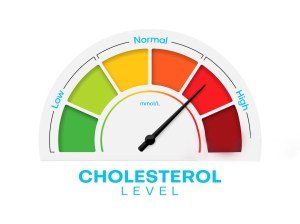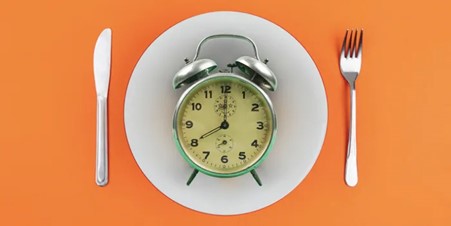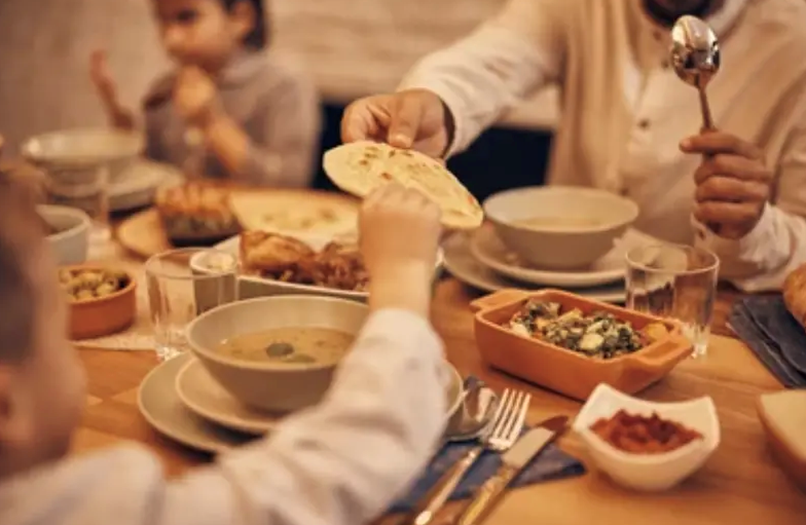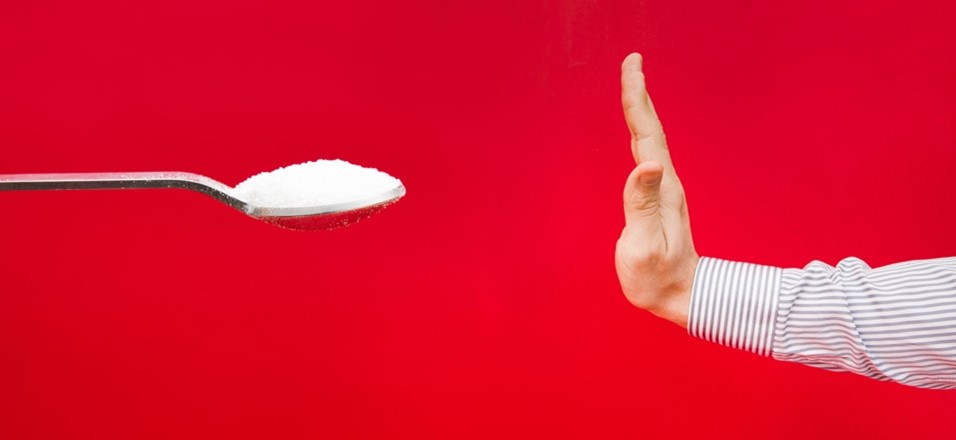
One of the biggest side effects of fasting during Ramadan is putting on those extra kilos. For a season that demands a high degree of self-control, it’s therefore a bit ironic that people practicising it don’t leave it to a planned schedule, giving up finally to an indulgent lifestyle that if not checked, only ends up with excessive weight-gain and heightened risks of hypertension.
Before we share tips on how best you can help yourself maintain a healthy body and prevent obesity and diabetes, here are a couple of immediate reminders that could help throw light on the many benefits of fasting, linked to preventing weight gain:
- It’s good news for those with high cholestrol: Studies show that intermittent fasting or Ramadan fasting can help lower LDL cholesterol which can clog your arteries.

- Fasting improves brain function: Experiments and tests reveal that fasting helps grow nerve cells that in turn, help in speeding up your thinking and concentration.
- Fasting helps insulin resistance: It’s great news for people suffering from insulin resistance: It improves the levels of insulin in your body.
- It helps you get a good night’s sleep: Apart from eating light and sticking to a good diet before sleep, it helps in lowering the amount of rapid eye movement (the point where your dreams connects with your memories), apart from reducing sleep interruptions or sleep apnea, so that your energy and focus stays sharp through the day.
- Fasting helps boost your natural immunity: There’s a natural link between fasting and immunity. It helps in natural cell regeneration while also flushing out impurities (aided of course by a healthy diet), which in turn helps build your body’s natural defences against infections.

Fasting: Weight challenges
One of the biggest challenges for people struggling with obesity and overweight issues during this time in order to reduce weight fast, isnt just avoiding ‘snack temptations’. It’s about not finding the right time or advice to plan a concrete quick weight-loss diet plan and a work-out.

What’s more, a normal fasting window which takes up to 15 hours, prevents you from exercise or workout due to low energy.
If this is an issue you have been facing currently, speak with our team of endocrinologists at HealthHub Clinics who will help you conquer weight loss, through simple lifestyle changes and a customised plan that works for you.
Here are 7 proven ways for you to lose weight during Ramadan…and maintain it from there on!
Ramadan Weight-loss Tips:
1. Keep Walking when you can!

One of the biggest damages that you can inflict on your health is going to sleep immediately after a heavy meal. The general tendency for many people after consuming a super-heavy Suhoor meal, is to sleep immediately resulting in bloating and gastrointestinal disorders.
In this case, one of the best ways to lose weight during Ramadan an early morning walk just after a meal is the best advise as it burns away calories while aiding your digestion. This could also apply for post-Iftaar meals.
2. Quantity & quality of a meal counts!
Iftaar meals can be a huge feast for the eyes and your stomach, after a day of fasting. From deep fried potato chips to steaks, syrupy sodas and brownies with cream, your stomach can pay a heavy price for all those food items loaded with danerous levels of fat that you consume. For one, fried food adds more cholestrol and sugars amp up your chances of diabetes.
Light food is the way to go, with minimum helpings, for Iftaar. Fruits, soups and salads (without added sugars or artificial sauces) are nutritious, healthy and double up as equally tasty options that leave you satisfied without those cravings.
Pregnant women, and those with chronic disorders such as hypertension, diabetes or gastrointestinal issues, should be cautious about what they eat and also when they eat.

One more point of caution: The issue of weight gain gets more serious especially when you get older. Ageing slows down your metabolism which make it very difficult to shed extra kilos. Just keep that in mind, when you consider nibbling away at that large chunk of cheesy pizza….
3. Combine your exercise with a sensible diet!

For a truly effective weight-loss programme to work for you, it’s important to know that power-packed exercises such as cardio-vascular stretches and crunches or an intense, half an hour of alternate walking or running itself cannot magically burn through those layers of fat.
Your physical fitness must be combined with a rigorous, no-compromise-diet plan during Iftaar or Suhoor. During or after your fast, just make sure to choose the time and workout for your upper-level body, as exercises for the lower body can reduce your blood pressure levels.
4. Get fit before Ramadan!
One of the best things you can do for your body is to gradually ease it into a fitness pattern or schedule before the fasting season. When you work out for close to an hour, you end up drinking more water as your body tends to get dehydrated.
Eventually, it’s a cycle of habit that prevents you from feeling thirsty for long periods of time, making it easier to exercise during Suhoor and drop the kilos eventually.

5. Be a sport: Choose a sport!
While fasting is a great way to lose weight, staying active is the secret addition to helping you lose weight. Sure, a brisk walk for 30 seconds can knock the weight off, but to avoid the monotony of a regular walk, try and plan alternate 45-minute sessions with your friends or family in playing a game of table tennis or light, night basketball.
Muscle movement and weight burn come into play, working to burn all those calories off your meals!
6. A balanced diet is a huge plus!
Water-based fruits such as water melons, natural lemon and mint juices or crushed cucumber and avacados, are great ways to push the fiber into your body, while also helping to flush out toxins.
Best Iftaar meals for Ramadan? Make sure you get your protein fix too from oatmeal or rusk slices, dates and nuts, salmon and boiled eggs, (rich in Omega 3), asparagus soups or brown rice.
Not following the diet plan that suits you best will have you appear faded, low on energy, and out-of-sorts at home or at the workplace, not to mention having sudden mood swings.
To know more about the right recipe for your health this Ramadan, talk to our expert team of doctors at HealthHub Clinics today!
7. Limit Sugar Intake

Strawberry sherbets and syrupy juices are part of the popular recipes served during Ramadan. While you don’t have to say no to these refreshers that accompany your meal, care must be taken on the portions you consume.
The best option is to find suitable replacements in place such as home-made banana smoothies or crushed avacados that are low in calories but rich in fiber and nutrition.
To know more or to book an appointment right away with any of our doctors, call 800 2344.
![Dr Amer Dardari 180X180[74] Dr Amer Dardari 180X180[74]](https://www.healthhubalfuttaim.com/wp-content/uploads/sites/17/2024/02/Dr-Amer-Dardari-180X18074.jpg?w=150&h=150&crop=1)







